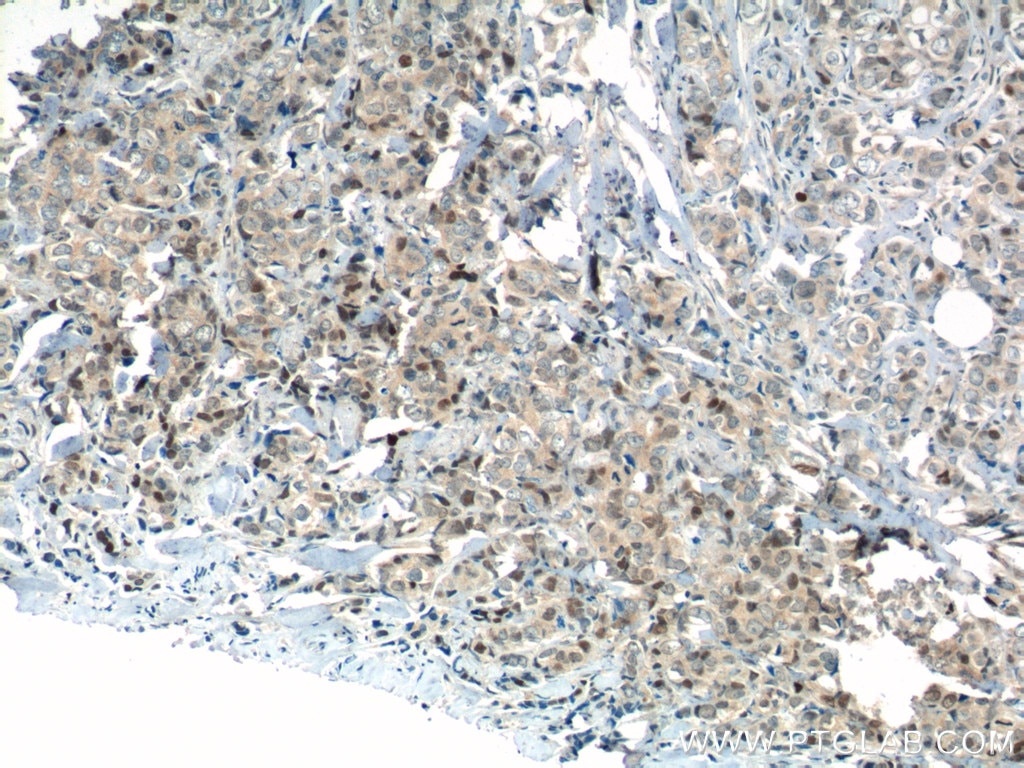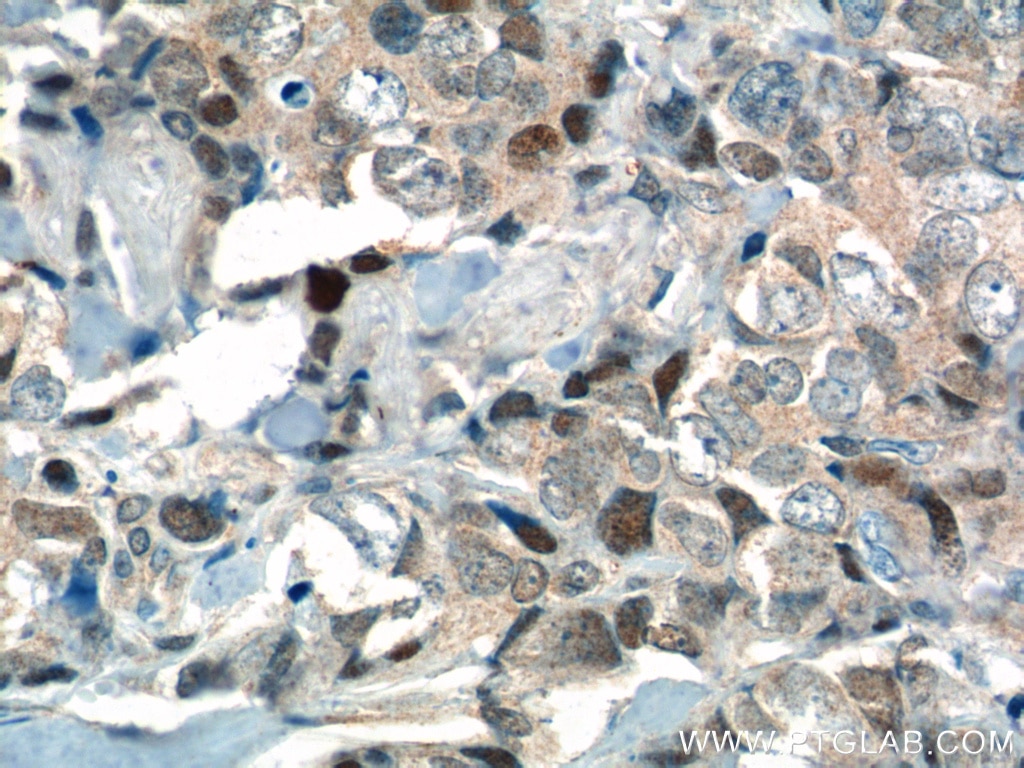Anticorps Polyclonal de lapin anti-KI67
KI67 Polyclonal Antibody for IHC, ELISA
Hôte / Isotype
Lapin / IgG
Réactivité testée
Humain et plus (2)
Applications
WB, IHC, IF, ELISA
Conjugaison
Non conjugué
N° de cat : 19972-1-AP
Synonymes
Galerie de données de validation
Applications testées
| Résultats positifs en IHC | tissu de cancer du sein humain, il est suggéré de démasquer l'antigène avec un tampon de TE buffer pH 9.0; (*) À défaut, 'le démasquage de l'antigène peut être 'effectué avec un tampon citrate pH 6,0. |
Dilution recommandée
| Application | Dilution |
|---|---|
| Immunohistochimie (IHC) | IHC : 1:200-1:800 |
| It is recommended that this reagent should be titrated in each testing system to obtain optimal results. | |
| Sample-dependent, check data in validation data gallery | |
Applications publiées
| WB | See 5 publications below |
| IHC | See 37 publications below |
| IF | See 1 publications below |
Informations sur le produit
19972-1-AP cible KI67 dans les applications de WB, IHC, IF, ELISA et montre une réactivité avec des échantillons Humain
| Réactivité | Humain |
| Réactivité citée | rat, Humain, souris |
| Hôte / Isotype | Lapin / IgG |
| Clonalité | Polyclonal |
| Type | Anticorps |
| Immunogène | Peptide |
| Nom complet | antigen identified by monoclonal antibody Ki-67 |
| Masse moléculaire calculée | 359 kDa |
| Numéro d’acquisition GenBank | NM_002417 |
| Symbole du gène | KI67 |
| Identification du gène (NCBI) | 4288 |
| Conjugaison | Non conjugué |
| Forme | Liquide |
| Méthode de purification | Purification par affinité contre l'antigène |
| Tampon de stockage | PBS with 0.02% sodium azide and 50% glycerol |
| Conditions de stockage | Stocker à -20°C. Stable pendant un an après l'expédition. L'aliquotage n'est pas nécessaire pour le stockage à -20oC Les 20ul contiennent 0,1% de BSA. |
Informations générales
MKI67 gene encodes a nuclear protein, antigen KI-67, which was identified by monoclonal antibody Ki-67. Expression of this antigen occurs preferentially during late G1, S, G2 and M phases of the cell cycle, while in cells in G0 phase the antigen cannot be detected (PMID: 8227122). The antigen Ki-67 is a human nuclear protein the expression of which is strictly associated with cell proliferation and which is widely used in routine pathology as a "proliferation marker" to measure the growth fraction of cells in human tumors (PMID: 8227122).
Publications
| Species | Application | Title |
|---|---|---|
Phytomedicine Ginsenoside Rg5 inhibits glioblastoma by activating ferroptosis via NR3C1/HSPB1/NCOA4 | ||
J Transl Med Molecule interacting with CasL-2 enhances tumor progression and alters radiosensitivity in cervical cancer | ||
J Invest Dermatol FUT8 remodeling of EGFR regulates epidermal keratinocyte proliferation during psoriasis development. | ||
Oncotarget miR-16 targets fibroblast growth factor 2 to inhibit NPC cell proliferation and invasion via PI3K/AKT and MAPK signaling pathways. | ||
Int J Cancer Inhibition of tumor growth by U0126 is associated with induction of interferon-γ production. | ||
Acta Biomater Systematic evaluation of multifunctional paclitaxel-loaded polymeric mixed micelles as a potential anticancer remedy to overcome multidrug resistance. |



